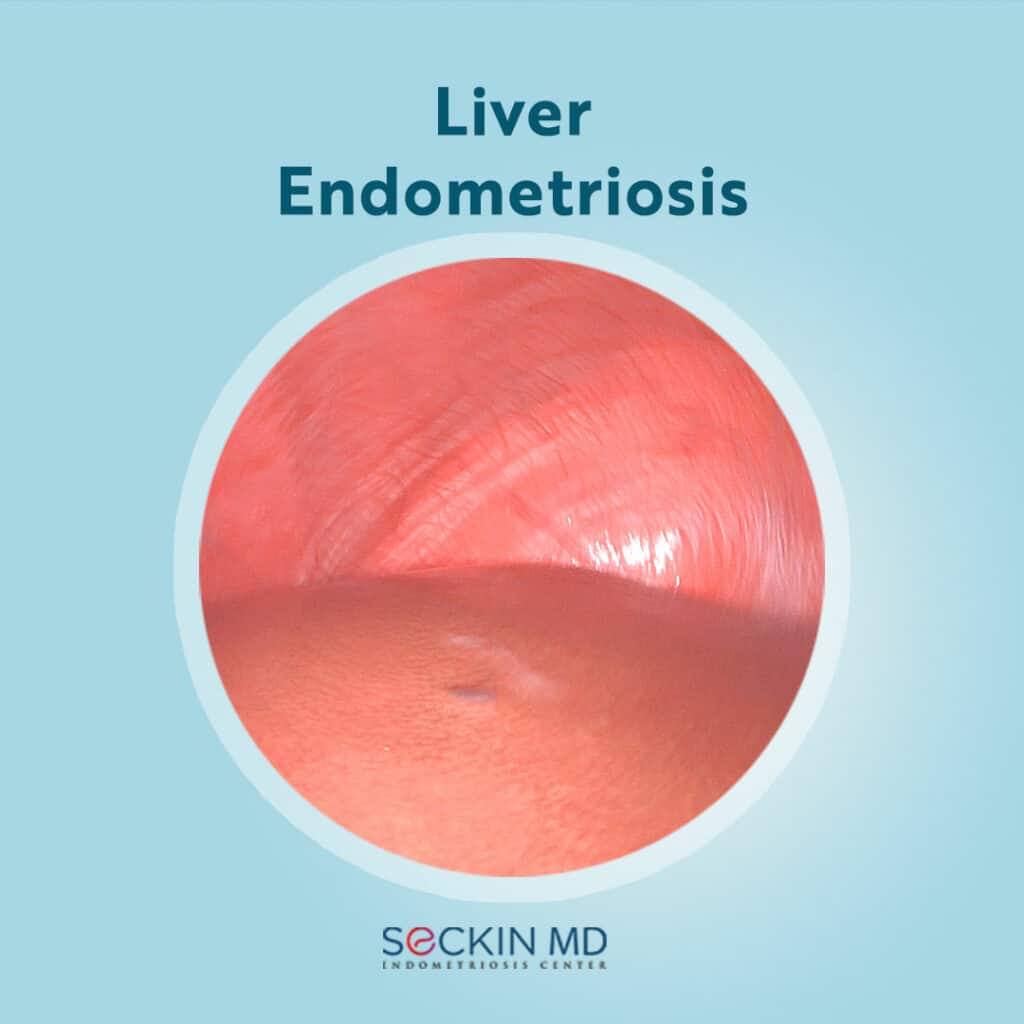
The liver is among the most important organs of the body and is responsible for many metabolic processes. It also acts as a detox organ for removing toxins from the bloodstream. Liver endometriosis or hepatic endometriosis is the presence of endometriosis lesions on the liver. Isolated cases of hepatic endometriosis are among the rarest forms of extra-pelvic endometriosis, with only about 28 cases in literature so far. However, endometriosis affecting the liver and the upper right quadrant is more common.
What is liver endometriosis?
The first scientists to describe liver endometriosis were Finkel and colleagues in 1986.
Liver endometriosis can cause pain in the right upper part of the abdomen and lead to nausea and vomiting. The disease can affect both lobes of the liver and cause the formation of clots in the portal vein with rapid progression of jaundice. Most often, endometriosis affects the upper right quadrant as a whole instead of only the liver.
Endometriosis affecting the upper right quadrant and the liver may be asymptomatic. However, it may be associated with adhesions and diaphragmatic implants, leading to thoracic endometriosis.
The exact mechanisms by which hepatic endometriosis occurs are not clear. Commonly accepted theories include lymphatic spread, retrograde menstruation, and hematogenic spread, among others, affecting the upper right quadrant as a whole.
How to diagnose?
The diagnosis of hepatic endometriosis cases reported in the literature involved imaging techniques such as CT, ultrasound, and MRI. However, imaging tests are not conclusive in deciding whether it is an endometriosis lesion or a tumor.
Supporting tests for differential diagnosis of other liver disorders include blood counts, hepatitis B surface antigen, and anti-hepatitis C virus antibodies.
Unless they are symptomatic or presenting with a large mass, major surgery is not necessary. After determining the segment in which the lesions are present, a laparoscopic partial hepatectomy and a histological examination of the sample can confirm the presence of endometriosis.
Although extremely rare, there have been a few cases of malignant transformation of hepatic endometriosis. So, testing for cancer markers such as CA-199, CA-125, carcinoembryonic antigen, and alpha-fetoprotein may also be necessary.
How to treat?
Currently, there is no consensus on treatment options for asymptomatic liver endometriosis. It is not clear whether the ectopic endometriosis lesions can penetrate deep into the liver tissue.
If symptoms are present, laparoscopic excision will help in complete removal of the lesion as compared to heat or laser ablation. Most cases of hepatic endometriosis are not isolated. Therefore, meticulous removal of each lesion, along with the diaphragm lesions, is necessary to offer the patient proper treatment.
Get a Second Opinion
Our endometriosis specialists are dedicated to providing patients with expert care. Whether you have been diagnosed or are looking to find a doctor, they are ready to help.Our office is located on 872 Fifth Avenue New York, NY 10065.
You may call us at (646) 960-3080 or have your case reviewed by clicking here.